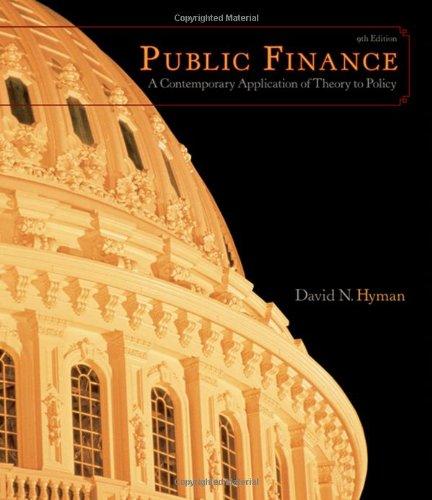Question
At 45 years of age, Seth figured he wanted to work only 10 more years. Being a full-time landlord had a lot of advantages: cash
At 45 years of age, Seth figured he wanted to work only 10 more years. Being a full-time landlord had a lot of advantages: cash flow, free time, being his own boss but it was time to start thinking towards retirement. The real estate investments that he had made over the last 15 years had paid off handsomely. After selling a duplex and a four-unit and paying the association taxes, Seth had $350,000 in the bank and was debt-free. With only 10 years before retirement, Seth wanted to make solid financial decisions that would limit his risk exposure. Fortunately, he had located another property that seemed to meet his needsan older, but well maintained four0unit apartment. The price tag was $250,000, well within his range, and the apartment would require no remodeling. Seth figured he could invest the other $100,000, and between the two hoped to have $1 million to retire on by age 55. Seths current bank offers a 1-year current certificate of deposit account paying 2% compounded semiannually. A competitor bank is also offering 2%, but compounded daily. If Seth invests the $100,000, how much more money will he have in the second bank after one year, due to the daily compounding? DO NOT USE TABLE/CHART. ONLY USE FORMULAS. DO NOT ROUND UNTIL FINAL ANSWER. Answer in Blank#1 with units to the correct power, round to the nearest hundredths, and no spaces (Example: 27.23gal/min, 18yd, 22.17yd^2, 727.98yd^3, 30.93%, etc.) Question 2 options:
Step by Step Solution
There are 3 Steps involved in it
Step: 1

Get Instant Access to Expert-Tailored Solutions
See step-by-step solutions with expert insights and AI powered tools for academic success
Step: 2

Step: 3

Ace Your Homework with AI
Get the answers you need in no time with our AI-driven, step-by-step assistance
Get Started


